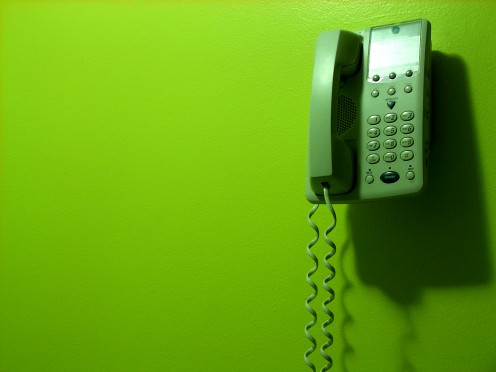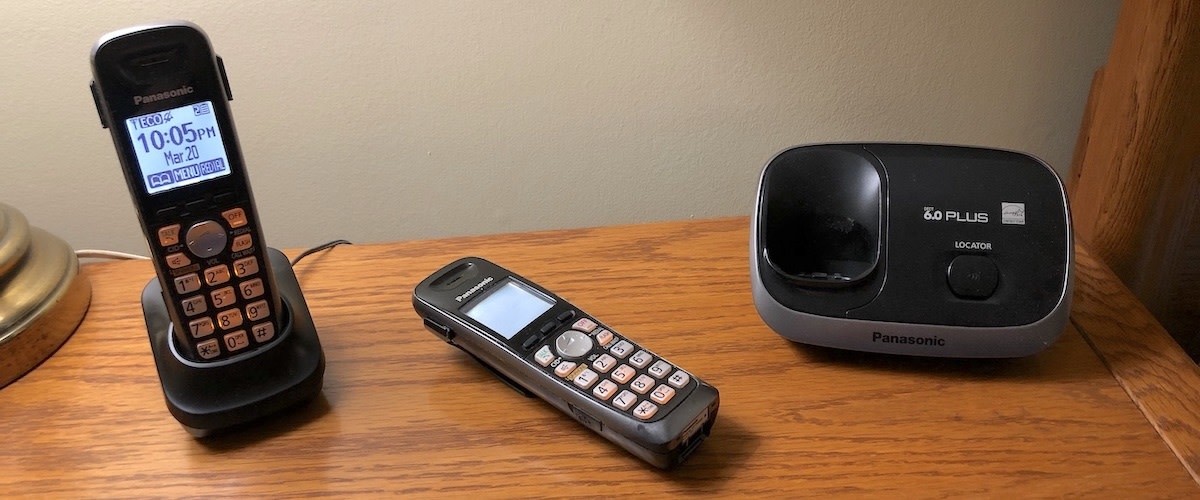Why The Phone's Answering Machine Is Awkward To Use
The Answering Machine
The answering machine, or the ever-popular voicemail, can be awkward to use. I refer to both the act of creating a taped message and the act of leaving a message on another person's machine.
Let's start with the first concept, creating of the voice message for your own answering machine.

Ack, I Sound Like THAT? Really?
And so it happens. You create a new message for your answering machine. That way, when people call your land-line, they will know to leave you a message. They will also confirm that they have called the right phone number when they hear your voice. Simple enough. Or is it?
You confidently press the "record" button and leave a message. You explain the process to leave messages after the tone. Perhaps you should play it back to ensure the words make sense.
Big problem. Do you really sound like that?
You wonder if your voice was always so screechy and, if it has always been like that, why did no one ever tell you? You could have undergone years of vocal lessons and even developed a British accent like Madonna.
Voice never seem to sound the same on playback. Have you ever noticed that?
Well, you think, now you will have to change the message. You are intimidated and scared to re-do the message.
Questions you ask yourself include:
- How do I make my voice sound casual and relaxed?
- How do I not sound needy?
- How do I tweak the screechy tone of my voice to sound more pleasant?
Yes, you are intimidated by a little device called the answering machine.

The Mid-Sentence Beep
Let's explore the second way that the answering machine is an intimidating device. The second way involves leaving a message on somebody else's machine.
You phone a friend and get his answering machine or electronic voice-mail. You really do need to get a hold of him, so you listen to his preamble that includes suggesting you leave your name, phone number, and a brief message to alert him to phone you back.
As you listen to his preamble, you start to compose in your head what you will say when you hear the beep to start recording your message. Include your name, why you need him to phone you back tonight, and... Well yes he already has your phone number. You wonder if he has it memorized? Has he added it to the contact list in his smart phone? What if--
Beep.
Your thought pattern is broken and you are brought back to reality.
Uh oh. Now what were you going to say?
As you start to talk you notice you are saying "um" several times and that your words are hurried. You slow the pace. And then the ultimate disaster occurs.
That's right.
A second beep sounds as you are halfway through a sentence. You have extended past the three minute limit for his answering machine messages. Your heart races as you imagine him listening to you talking and then laughing as you are cut off mid-sentence.
You glare at the telephone. You consider phoning back to complete your sentence in a second message. You are intimidated. You feel awkward.
Now That You Have Left The Message...
You decide against phoning him back as you may make another mistake. Better to leave as is. Instead, you contemplate the answering machine itself.
The answering machine intimidates people in several other ways:
- You are waiting for your friend to listen to the machine and then phone you back in return. You are a prisoner to the machine. Your voice, however screechy it sounds, is locked into that machine now. Your voice message is taped.
- How did you sound on the message? You can't change it now. Ackk!
- You wonder, "Did the machine work correctly? Did it really tape me?" We have all experienced at some point leaving a voice-mail for a person and later finding out the intended recipient never received it. So there are glitches that can occur.

Now What?
The answering machine and voice-mail are intimidating devices. Whether you are leaving a message for another person or composing your own preamble for any calls you receive, the process can be a difficult one.
Do not over-think the vocal processes.
Even if you do feel embarrassed about a message that you leave, the recipient may not even notice an awkward tone in your voice or the high pitch of your voice. Even better, that friend or family member may think you sound sweet and that your words are genuine. Do not assume you know a reaction before it occurs.
Also, remember that people are often in a hurry. They may be listening to your messages as they make dinners for their families, or while sorting piles of laundry. Their undivided attention is likely not on your voice or over-analyzing every word you say.
If you are still worried about the particular message you have left on another person's answering machine, explain the next time you talk to the individual that you were nervous or other factors that affected the message quality.
Be genuine and honest. People are more understanding than you may realize and, in the scheme of things, a poor message is not an earth-shattering mistake. Keep your worries in perspective and try not to be awkward when using the answering machine.
Have You Ever Been Embarrassed By A Message You Left For A Friend?
What Information To Include In A Voicemail Greeting
- What Information To Include In A Voicemail Greeting
Whether you have an electronic voicemail attached to your land-line or smartphone, or you own an actual answering machine device, you likely have a greeting. Take the time to create your own voicemail greeting and customize the information you wish t








